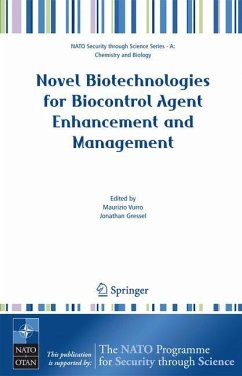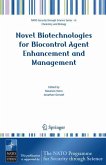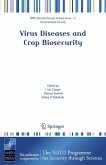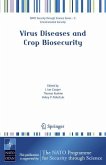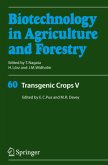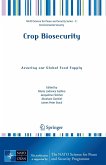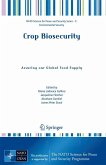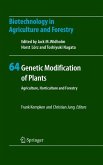The main scientists working with enhancing fungal, bacterial, virus and insect biological control agents on different targets present the latest progress in overcoming the barrier of insufficient virulence. This multi-disciplinary group review their own work and that of others, and describe the approaches being used, the successes and the barriers yet to be overcome. There is no up-to-date equivalent work describing biocontrol, let alone enhanced biocontrol.
The intent of the NATO Advanced Study Institute (ASI) entitled "Novel Biotechnologies for Biocontrol Agent Enhancement and Management" was to permit the meeting of the major exponents in the scienti?c community working with enhancing different biological control agents (fungi, bacteria, virus, nematodes, and insects) on different targets (pathogens, insects, weeds, and rodents). This multidisciplinary group, having backgrounds in the diff- ent aspects of biotechnologies (transgenic enhancement, molecular biology, formulation, genetics, risk assessment, new technology, biochemistry, and physiology), presented highly advanced lectures during the 10-day-ASI, in order to allow students to improve their capability to enhance and manage - ological control agents. This approach will allow ASI attendees to bring new ideas, new approaches, or new methodologies coming from different ?elds of application to their own ?eld of expertise. A further aim of the NATO ASI was to create a network of young and experienced scientists, with few geographical barriers among countries, who will develop new opportunities to collaborate in this ?eld of science that requires a "global" collaborative approach. Forty students from twenty countries took part to the NATO ASI. In addition to the 45 lectures from the 15 lecturers, there were 25 short presentations and 8 posters on cogent research from students in this course, held between September 8- 2006 and September 19, 2006.
The intent of the NATO Advanced Study Institute (ASI) entitled "Novel Biotechnologies for Biocontrol Agent Enhancement and Management" was to permit the meeting of the major exponents in the scienti?c community working with enhancing different biological control agents (fungi, bacteria, virus, nematodes, and insects) on different targets (pathogens, insects, weeds, and rodents). This multidisciplinary group, having backgrounds in the diff- ent aspects of biotechnologies (transgenic enhancement, molecular biology, formulation, genetics, risk assessment, new technology, biochemistry, and physiology), presented highly advanced lectures during the 10-day-ASI, in order to allow students to improve their capability to enhance and manage - ological control agents. This approach will allow ASI attendees to bring new ideas, new approaches, or new methodologies coming from different ?elds of application to their own ?eld of expertise. A further aim of the NATO ASI was to create a network of young and experienced scientists, with few geographical barriers among countries, who will develop new opportunities to collaborate in this ?eld of science that requires a "global" collaborative approach. Forty students from twenty countries took part to the NATO ASI. In addition to the 45 lectures from the 15 lecturers, there were 25 short presentations and 8 posters on cogent research from students in this course, held between September 8- 2006 and September 19, 2006.

